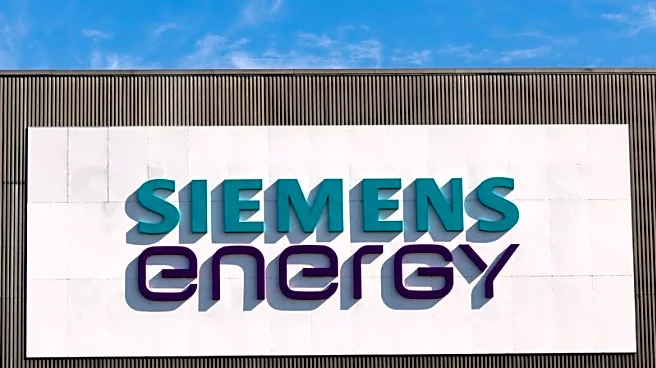What's Happening?
The Arab Shipbuilding and Repair Yard Company (ASRY) has introduced its Underway Replenishment Service in collaboration with Fairwaters, a leader in integrated maritime solutions. This service represents a significant advancement in maritime logistics, allowing for fuel and cargo transfers without the need to stop or slow down vessels. This initiative is part of ASRY's broader strategy to adopt cutting-edge technologies and improve the performance of both naval and commercial fleets. Dr. Ahmed Al Abri, ASRY's CEO, emphasized the company's commitment to expanding partnerships and integrating global expertise to enhance maritime services. The service requires advanced infrastructure and specially equipped vessels, marking a strategic evolution in maritime logistics.
Why It's Important?
The introduction of the Underway Replenishment Service by ASRY is a transformative development in maritime logistics, offering significant benefits to the shipping industry. By enabling continuous operations without the need for vessels to stop, this service enhances operational efficiency and reduces delays, which is crucial in maintaining competitive supply routes. The service is expected to lower operating costs and improve the reliability of supply chains, benefiting both naval and commercial shipping sectors. This move reflects a broader industry trend towards smarter, more sustainable logistics solutions, potentially setting a new standard for maritime operations.
What's Next?
ASRY's new service is likely to attract interest from various stakeholders in the maritime industry, including shipping companies looking to optimize their logistics operations. The success of this service could lead to further innovations and collaborations aimed at enhancing maritime logistics. Additionally, as the service gains traction, it may prompt other companies to adopt similar technologies, further advancing the industry's shift towards more efficient and sustainable practices.
Beyond the Headlines
The deployment of the Underway Replenishment Service highlights the growing importance of technological innovation in the maritime industry. It underscores the need for companies to invest in advanced infrastructure and specialized equipment to remain competitive. This development also raises questions about the future of maritime logistics, particularly in terms of environmental impact and sustainability. As the industry moves towards more efficient operations, there may be increased scrutiny on the environmental implications of such technologies.











